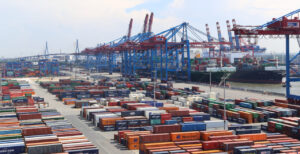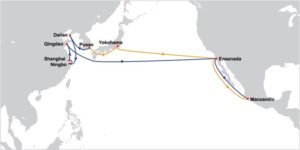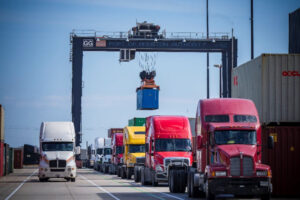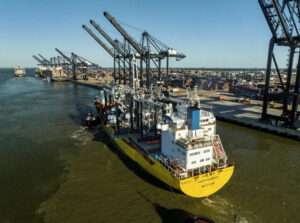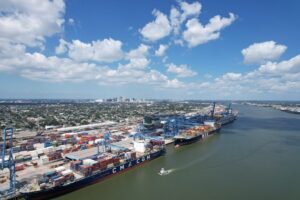The newly formed Crimean independent parliament has announced a bill whereby all Ukrainian ports located on the peninsula are now directly under their control.
A new authority, under the name of the Republican Committee on Transport and Communications announced that all port assets were now under Crimean parliamentary rule.
The news comes after a landslide ballot last Sunday, whereby 97 percent of voters supported a decision to secede from Ukraine, and become an independent member of the Russian federation.
Whilst recognised by the Russian government, the annexation by Russian forces in the Crimean peninsula has meant that the vote has been deemed illegitimate by the majority of governments in the Western world.
This has not stopped Crimean officials from informing port operators that the ports of Kerch, Yalta, Eupatoriya and Theodosia will now operate under the new independent Crimean flag, despite questions of legality.
This will not have any immediate effects on operators in the area; a shift in currency to the Ruble will not affect docking fees that are predominately paid in US Dollars.
However, the question remains as to what effect Russia’s new dominance over the Black Sea route will have on Ukrainian shipping rates and for that matter the rest of the world.
Ukraine ranks as the world’s fourth and fifth largest exporter of corn and wheat respectively, yet Crimea only accounts for about seven percent of the countries total grain export.
It is further believed that the 12 percent total cargo moved through the Crimean ports can easily be re-directed to the mainland ports of Odessa, Ilyichevsk and Nikolaev which remain under central governmental control and will be able to cope with an increase in traffic.
What is uncertain is the effect that Russian majority control will have over the Black Sea region.
By gaining Crimea, Russia gains the Kerch Strait – a key route linking the Sea of Azov to the Black Sea.
About five kilometres in length and 4.5 kilometres wide, the stretch of land links eastern Crimea to the Krasnodar region.
By gaining the pathway, Russia is now in complete control of the Kerch-Yenikalskiy Canal, which allows larger vessels passage between the Black Sea and the Sea of Azov.
Furthermore, the new ownership means that Russia will have complete control of the entrance to the Volga, Europe’s largest river, allowing unhindered shipping access to Moscow and a pathway to the Caspian Sea.
Prior to the Euromaiden protests, Russia and the former Yanukovych administration had signed a deal in December 2013, regarding the construction a bridge to linking the tip to Russian mainland.
Despite the current political climate, Russian Prime Minister Dmitry Medvedev announced the continued development of the bridge, which will be overseen by a subsidiary company formed off state-owned road developers Avtodor.
With Crimea now considered home territory, the peninsula will act as a key transport route for cargo and goods from the port cities of Novorossiysk and Sochi without having to cross a border, much to the detriment of Ukraine and the western world.


